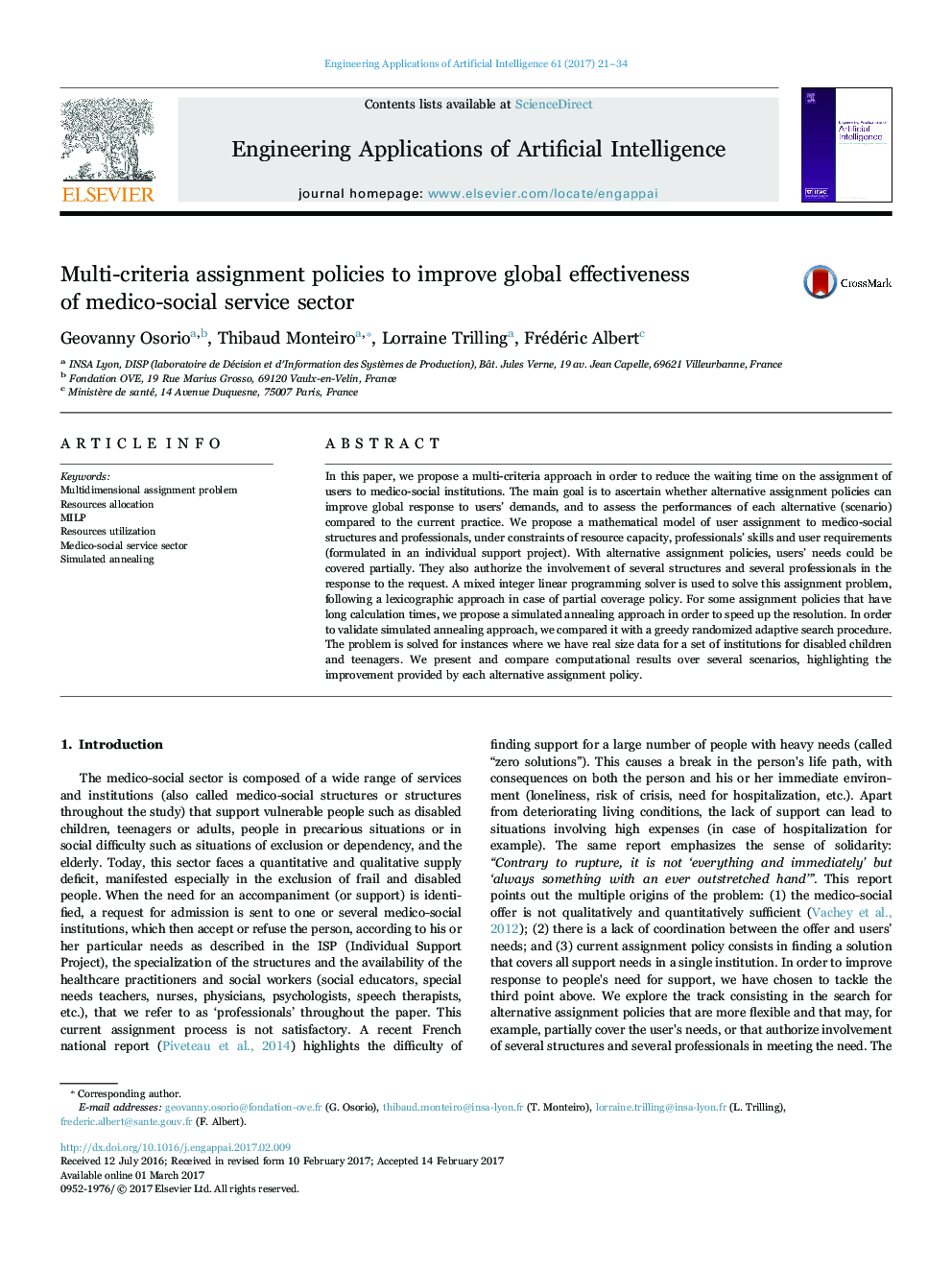| Article ID | Journal | Published Year | Pages | File Type |
|---|---|---|---|---|
| 4942695 | Engineering Applications of Artificial Intelligence | 2017 | 14 Pages |
Abstract
In this paper, we propose a multi-criteria approach in order to reduce the waiting time on the assignment of users to medico-social institutions. The main goal is to ascertain whether alternative assignment policies can improve global response to users' demands, and to assess the performances of each alternative (scenario) compared to the current practice. We propose a mathematical model of user assignment to medico-social structures and professionals, under constraints of resource capacity, professionals' skills and user requirements (formulated in an individual support project). With alternative assignment policies, users' needs could be covered partially. They also authorize the involvement of several structures and several professionals in the response to the request. A mixed integer linear programming solver is used to solve this assignment problem, following a lexicographic approach in case of partial coverage policy. For some assignment policies that have long calculation times, we propose a simulated annealing approach in order to speed up the resolution. In order to validate simulated annealing approach, we compared it with a greedy randomized adaptive search procedure. The problem is solved for instances where we have real size data for a set of institutions for disabled children and teenagers. We present and compare computational results over several scenarios, highlighting the improvement provided by each alternative assignment policy.
Keywords
Related Topics
Physical Sciences and Engineering
Computer Science
Artificial Intelligence
Authors
Geovanny Osorio, Thibaud Monteiro, Lorraine Trilling, Frédéric Albert,
